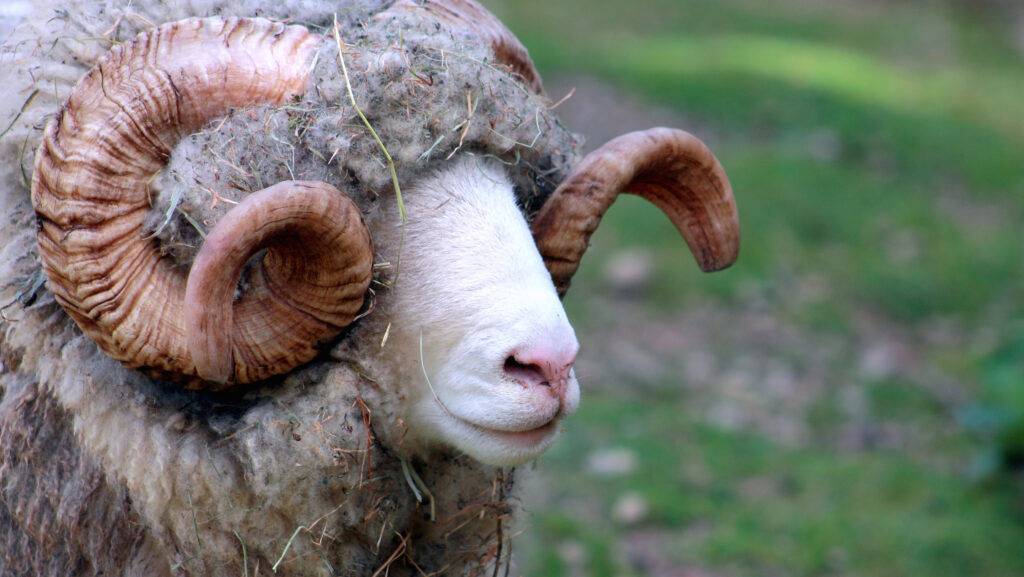Sheep breeders sought to help map maedi visna resistance
 © Adobe Stock
© Adobe Stock Sheep breeders can harness genomics to achieve resistance to a highly infectious viral disease.
Researchers are mapping maedi visna (MV) susceptibility in the UK sheep flock, urging breeders to add MV the TMEM154 K allele into their breeding programme.
Sheep must be homozygous (have two copies) of the allele to demonstrate resistance. This is known as “KK”.
See also: Lower-cost MV scheme targets commercial flocks
A £3.1m, three-year study into MV resistance prevalence in UK sheep led by Dr Rachael Tarlington of Nottingham University, David Griffiths of Moredun, and sheep vet Fiona Lovatt starts in September.
Rachael told Farmers Weekly that resistance was “not absolute”, but sheep homozygous for the K allele showed lower viral load, spread the disease less and showed no effects of the disease.
Research into resistance
Funded by the British Biosciences and Research Council (BBSRC), the project has two aims:
- Figure out what the gene does and how it interacts with the virus
- Genotype breeds that have no data. Up to 20 sheep in a breed can be genotyped for free.
Signet Breeding Services manager Samuel Boon says it was fortunate that this health trait had only one gene involved.
“Clearly, the fewer genes involved, the easier it makes selection,” he says.
“Interestingly, in the sheep industry there are obvious parallels to Scrapie, where a small number of genetic variants were shown to have a major effect on susceptibility/resistance.
“I think this experience will be helpful in getting farmers to engage with this emerging technology.”
Exciting development
David Wilson, veterinary manager at Scotland’s Rural College (SRUC) health schemes, which provides MV accreditation, says: “MV resistance is an exciting and potentially important development.
“We have been in discussions with the people involved in this work and are happy to help where possible.
“It is too early to know what the implications may be for the accreditation scheme, but we will be keeping a close eye on progress.”
Bluefaced Leicester breeder Derek Hall, chairman of the Mule Group, says MV resistance could be a “game changer” for the stratified sheep sector.
“How I see it working in a stratified flock is to test all sires, including frozen semen, and sample breeding females and lambs marketed for breeding,” he says.
“It would probably need an accredited scheme that verifies the presence of the resistance gene in the sheep being sold.
“After two or three years of breeding for the gene, I think rams with no copies of the gene will start suffering in value.”
Barrie Turner, chief executive of Suffolk Sheep Society said DNA samples taken for sire verification purposes since 2018 have been reviewed for the MV resistance gene, finding the gene in over 90% of samples.
Mr Turner added: “Working with AHDB and SRUC we will now work out what we can look and search for going forward for beneficial traits within an animal’s genetic barcode, that can help us with selection within the breeding programme.
“This will ultimately work its way through to improving efficiencies on farm, improving profitability and reducing carbon footprint.”
What can breeders do?
- Contact breed societies and explore involvement in the BBSRC-funded project. The project can cover up to 20 sheep a breed and three sheep in a flock.
- Dorset, Suffolk, Lleyn, Romney Marsh, Roussin, South Country Cheviot, Charollais, Meatlinc and Exlana flocks recorded on Signet can retrieve genomic data from AHDB databases. More samples are not required.
- Ram breeders should consider storing DNA for important breeding stock, such as stock rams.
- Neogen says it offers a standalone MV test for about £15. MV will soon be added to the £27 routine test bundle with myostatin, parentage and scrapie and so on.
Weatherbys told Farmers Weekly they are working to bring an MV test to the market for UK sheep farmers.
What can commercial farmers do?
- Buy rams that are homozygous for the TMEM154 K allele
- Slowly breed resistance into their flock
- Continue sourcing from MV-accredited flocks if already doing so
What is MV resistance like in the UK?
See table for the estimated level of resistance in breeds studied or that have been genotyped as part of Signet recording with AHDB.
Current known level of MV resistance in 13 UK-based populations |
|
|
Breed |
% of population MV resistant |
|
Dorset Horn |
90 |
|
Scottish Blackface |
64 |
|
Soay |
60 |
|
Herdwick and Beulah |
58 |
|
Border Leicester |
40 |
|
Easycare |
30 |
|
Hardy Speckle |
25 |
|
South West Mountain |
17 |
|
Welsh Mountain and Texel |
15 |
|
Brecknock Hill Cheviot |
13 |
|
North Country Cheviot (Hill) |
10 |
